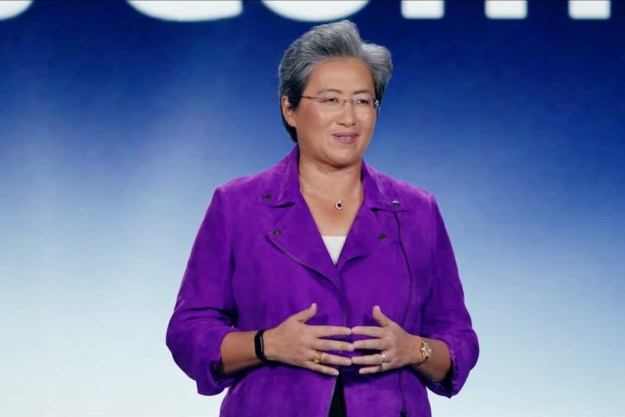
It’s no secret that relations between chipmaker Intel and graphics developer Nvidia have become complicated lately, with Nvidia very publicly dismissing the quality of Intel’s integrated graphics solutions and gunning not only for the high-end graphics market, but also targeting netbooks with its new Ion platform and even entering the supercomputing arena. Now, Intel has filed suit against the graphics developer, claiming a four-year-old chipset licensing agreement between the two companies does not apply to future Intel processors with integrated memory controllers—and by that, Intel means it’s forthcoming class of CPUs codenamed “Nehalem,” a multi-core processor that will feature an integrated graphics controller and a new Direct Media Interface (DMI) bus.
The suit was filed in the Court of Chancery in Delaware and is sealed to the public, but in the suit Intel alleges its existing licensing agreement with Nvidia does not apply to chipsets with integrated memory controllers that simply did not exist when the agreement was signed. Nvidia, for its part, says it is confident the license agreement does apply to Nehalem…and even goes so far as to take yet another potshot at Intel in saying it will fight the lawsuit:
“We are confident that our license, as negotiated, applies,” said Nvidia CEO Jen-Hsun Huang, in a statement. “At the heart of this issue is that the CPU has run its course and the soul of the PC is shifting quickly to the GPU. This is clearly an attempt to stifle innovation to protect a decaying CPU business.”
An Intel spokesperson said the company has been trying to resolve the matter in discussions with Nvidia for over a year, but the companies had failed to reach an agreement, leaving a lawsuit as the only option.
Editors' Recommendations
- The only Intel CPU you should buy is over a year old
- Intel just called out Nvidia
- AMD RX 7600 vs. Nvidia RTX 4060 Ti: value over performance
- 3 reasons you should still buy an Nvidia GPU over AMD
- Elon Musk threatens to sue Microsoft over AI training


